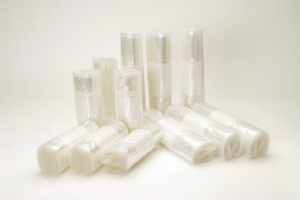
This is a busy time of year indeed for food preservers! We often get into such a frenzy canning and dehydrating that we miss a very basic first step—taking inventory of what is left in the pantry from last year!
Before you put the first jar away you need to pull everything else out. Rotating your food storage is the key to successful long-term food storage because it minimizes waste—both wasted food and wasted money! It is also much healthier; all food storage will lose nutritional value over time, different foods and preserving methods lose at different rates. Eating down the oldest food storage first means that nothing is lost in the back of the cupboard, aging beyond use.
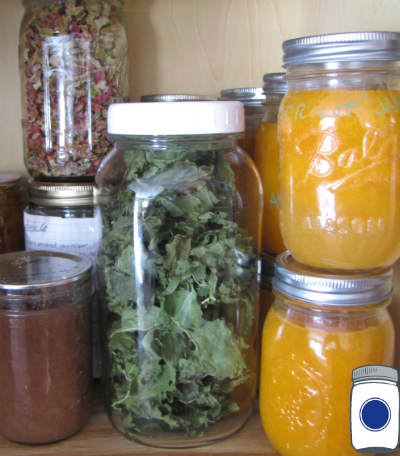
Signs of Spoilage? When you have everything out, look for these things:
1) Appearance: some foods just do not look as appetizing as you hope, that is just the truth of it. Using citric acid or lemon juice will minimize oxidation; it is oxidation that causes browning in many foods. That oxidization does not affect food quality, just appearance. If oxidization is all you see by all means, eat it anyway (even if you have to hide the food as an ingredient so your family will not notice). If something else looks “off” though, especially something like mold or other growth, discard. Sometimes you will see a lot of aerobic activity going on there, bubbles and fermentation activity. These cultures are not the ones you have cultivated by fermenting with whey, do not trust this unexpected stuff! Along with this symptom of food spoilage, you will also often see a bulging top—even if the seal is not broken. This means that the food is letting off gases in there from bacterium ingesting the sugars. Do not trust it!
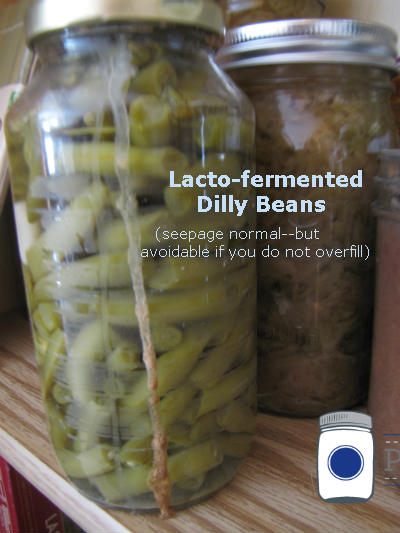
2) Water or liquid levels: Canned goods should be covered in liquids. Sometimes the liquid seeps out during the canning process and your green beans are not submerged. Although these are fine, these foods will begin to discolor. Definitely eat these foods shortly after canning, because it is my experience that these foods are the most likely candidates to succumb to food spoilage. Fermented foods should always be covered completely with liquid too—so if you see your sauerkraut or kimchi above the water level something is not quite right. It is normal for these foods to spill out of the jar (leaving a mess on your shelf if you are not careful), do not worry about that. But if these foods are not submerged, they should be opened and checked; if they are still healthy, refrigerate and eat immediately. If they are questionable, pitch!
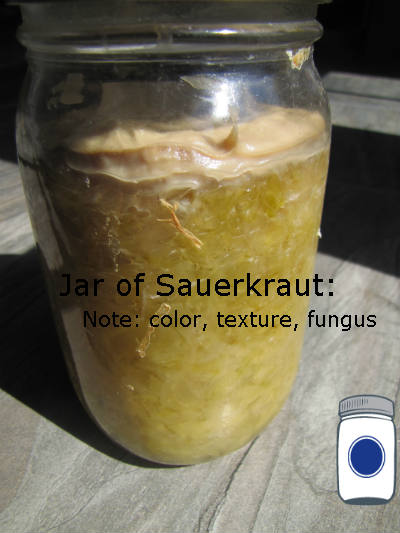
3) A firm seal: The first recommendation is that you remove the metal rings off of your canned goods, only leaving the actual canning lid. The ring is not necessary apart from the actual canning process and it can mask the danger of jars having lost their seal. Jars can lose their seal for a lot of reasons, but I do find that my Tattler Lids are consistently solid sealers. My theory is that it is because they are heavier than the cheap metal lids and stay in place better during the canning process (especially during the high-bubbling action of a pressure canner). In either case, check each jars lid by trying to wiggle the lid, or even picking up the jar by the lid itself. If any jar does not have a sealed lid, discard immediately and sterilize your jars and reusable canning lids.
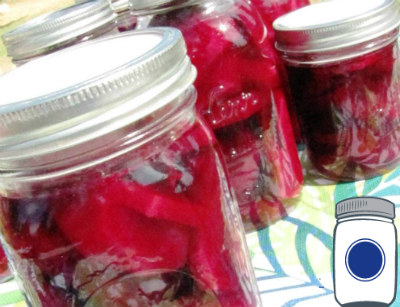
4) Vacuum sealed Bags should still be firmly vacuumed. If air has seeped in at all, there was a hole or puncture in that bag and you cannot trust that food. It may look okay, smell okay, but you have no way of knowing. Do not risk it please. Start with high quality bags that have a high nylon content. This will minimize any risk of puncture. If you are vacuum sealing a dried fruit or vegetable that becomes pointy once the moisture has been removed (pineapple, potatoes, etc), try this trick: put the food into a paper lunch sack first, then vacuum seal that. The paper bag will do double duty—keeping out the light and preventing sharp food edges from puncturing the bag.
5) Check the labels: Sometimes my labels have fallen off. Sometimes I used the wrong marker or pen on that particular type of label and they are fuzzy, difficult to read, or even faded. If you can still make out what it says, re-label it. Not only is it convenient to know what you are opening (looks can be deceiving), but having a readable date is a safety concern. If you aren’t labeling your food, you are missing the first sign of spoilage–the date!
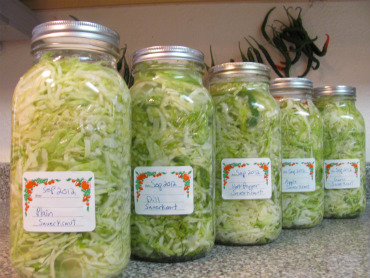
6) Check the pantry shelf itself: Canned goods can be a lot of weight. Are the brackets holding the shelf secure? You would not want to lose all of that hard work when the shelf finally dies (I had that happen, luckily, it was a low shelf and I did not lose much). Are there any sticky spots, syrup rings, or other gunk on that shelf? That is a good sign that something is amiss with one of your jars. It is also a great attraction for the local ant population and it is a great time to just wipe everything clean and start over.
Of course, once you open the jars, there are other things to note such as smells and flavors. But for the Annual Pantry Inventory Day, you are done! Now, go enjoy those yummy foods that you forgot you had.
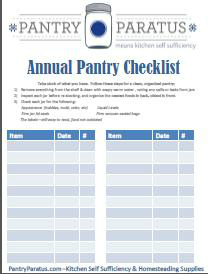 Get a Free Annual Pantry Checklist:
Get a Free Annual Pantry Checklist:
Get a free checklist, among a few other goodies, when you sign up for our mailing list!

